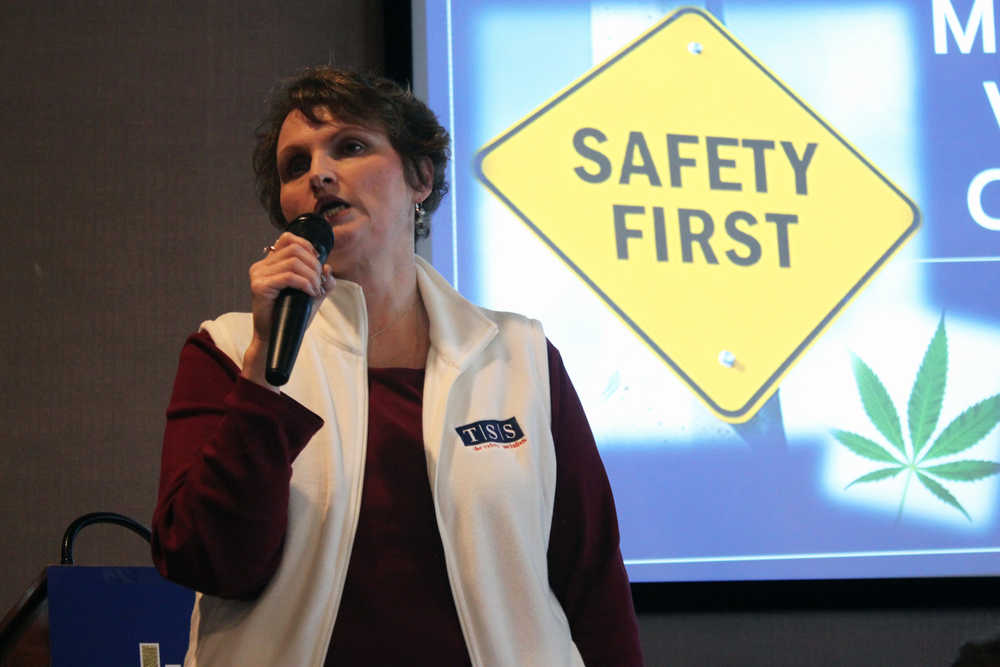Even though recreational marijuana is now legal in Alaska, employers can still have drug-free work policies, TSS Senior Project Manager Jo McGuire said during the weekly Juneau Chamber of Commerce luncheon Thursday.
McGuire is from Colorado, which legalized marijuana in 2012.
“It’s a Petri dish of what to do, what not to do,” she said of her home state.
McGuire sat on the Colorado governor’s task force that recommended a legislative framework for marijuana regulation. She now leads the national TSS team, which is short for The Safety Specialists. TSS provides drug screening services and has Alaska offices in Juneau, Ketchikan and Craig.
She said marijuana legalization has a huge impact on small business owners, especially when it comes to safety.
“For marijuana use specifically, there are 55 percent more industrial accidents, 85 percent more injuries and 75 more percent more absenteeism than employees who choose not to use substances,” she said.
When asked by the Empire, McGuire attributed those statistics to a study done nearly two decades ago by Abbie Crites-Leoni, “Medicinal Use of Marijuana: Is the Debate a Smoke Screen for Movement Toward Legalization?” published in the Journal of Legal Medicine in 1998.
That study could not be viewed online without a $40 subscription.
A quick Google search also showed those same statistics appeared in a National Institute on Drug Abuse article that cites another old study published in 1990 in The Journal of the American Medical Association. That study only looked at one group of postal workers who tested positive for marijuana on a pre-employment urine drug test.
When reached by phone after the Chamber lunch, McGuire said she believed the two studies were separate. For the 1998 study, she said, “the “criteria they used was a large sample size representative of national numbers.”
In her talk to the Chamber, McGuire said employers should keep in mind that today’s marijuana has higher THC levels than in the past, which can cause impairment for a prolonged period of time. She added that marijuana trends have changed. Now, there are THC cartridges for e-cigarettes and edibles on the market, such as gummy candy, sodas, cookies, granola bars and chocolate.
“People are putting this stuff in their lunch boxes,” McGuire said of employees.
She described “Gas and Grass” stations in Colorado, places that combine a gas station with a marijuana dispensary. McGuire anticipates these popping up in Alaska.
“Do you want company vehicles pumping up there?” she asked the Chamber crowd. She asked a similar question regarding company cars at marijuana retail shops.
Another challenge Colorado employers are facing, McGuire said, is low numbers of qualified applicants who pass a drug test. She cited one employer who now looks out of state for new hires.
McGuire said it’s imperative for business owners to have a drug policy, communicate the policy clearly and consistently enforce the policy.
“What is the discussion really about? It’s really about the rights of employers to have a safe and drug-free workforce,” McGuire said. “It’s about safety versus liability for every one of you. It’s about responsibility versus culpability. It’s about productivity versus loss, and risk control.”
• Contact reporter Lisa Phu at lisa.phu@juneauempire.com or 523-2246.

